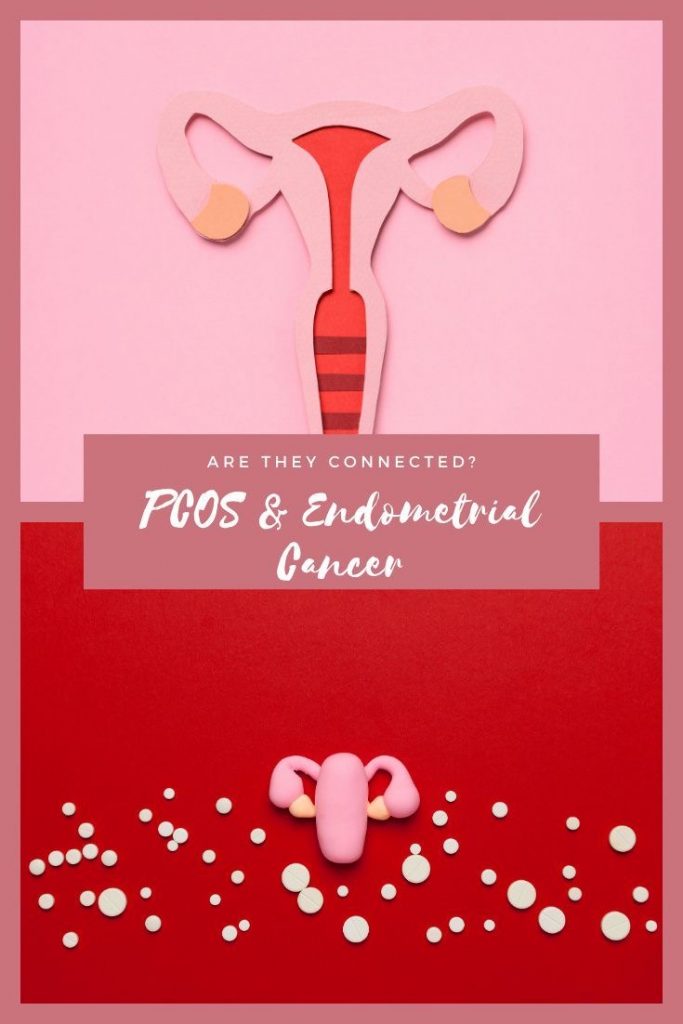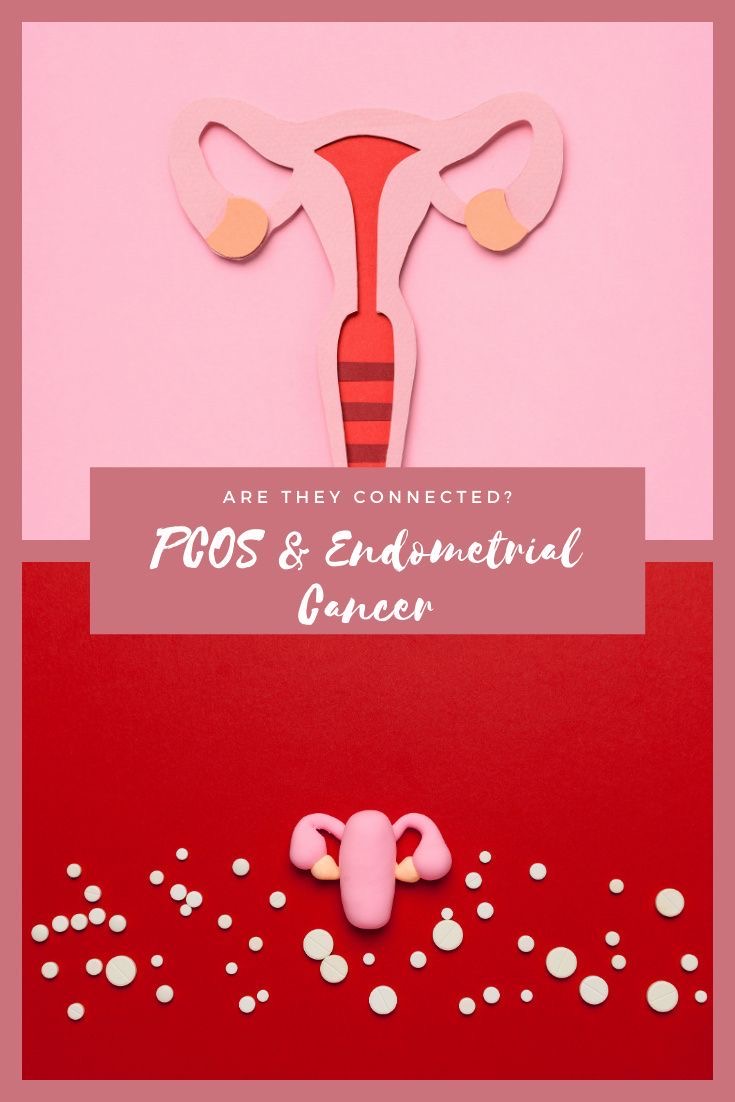
The Hidden Link: Understanding Endometrial Cancer and Its Connection to PCOS
:
In the world of women’s health, there are two conditions that often fly under the radar, but their connection is both profound and alarming. Endometrial cancer, a potentially life-threatening disease, and polycystic ovary syndrome (PCOS), a common hormonal disorder, share a hidden link that deserves our attention. In this article, we’ll explore the key things you need to know about endometrial cancer and its intriguing connection to PCOS.
What is Endometrial Cancer?
Endometrial cancer is a type of cancer that originates in the lining of the uterus, known as the endometrium. It occurs when cells in the endometrium start growing uncontrollably, forming a tumor. This cancer primarily affects postmenopausal women, but it can also occur in younger women.
Understanding PCOS:
Polycystic ovary syndrome (PCOS) is a hormonal disorder that affects women of reproductive age. It is characterized by an imbalance in reproductive hormones, leading to various symptoms such as irregular menstrual cycles, excessive hair growth, acne, and weight gain. Additionally, women with PCOS often have multiple small cysts on their ovaries.
The Alarming Connection:
Studies have uncovered a compelling connection between PCOS and endometrial cancer. Women with PCOS have a higher risk of developing endometrial cancer compared to those without the syndrome. The exact reason behind this link is still being investigated, but researchers believe it’s primarily due to hormonal imbalances, particularly high levels of estrogen, that are commonly seen in PCOS.
Estrogen and Endometrial Cancer:
Estrogen plays a crucial role in the growth of the endometrium. In women with PCOS, the hormonal imbalance disrupts the normal menstrual cycle, leading to irregular or absent ovulation. This, in turn, results in unopposed estrogen exposure to the endometrium, promoting its abnormal growth and increasing the risk of developing endometrial cancer.
Importance of Early Detection:
One of the most critical aspects of combating endometrial cancer is early detection. Unfortunately, due to its subtle symptoms, such as abnormal vaginal bleeding or discharge, many cases go unnoticed until the disease has advanced. Women with PCOS should be especially vigilant in monitoring their menstrual cycles and reporting any irregularities to their healthcare provider promptly.
Risk Reduction and Management:
While the link between PCOS and endometrial cancer exists, it is important to note that not all women with PCOS will develop this form of cancer. However, there are several measures women with PCOS can take to reduce their risk:
Regular check-ups: Schedule regular gynecological exams to monitor the health of your reproductive system.
Lifestyle modifications: Maintain a healthy weight through a balanced diet and regular exercise, as obesity increases the risk of both PCOS and endometrial cancer.
Hormonal therapy: Certain hormonal treatments, such as oral contraceptives or progestin therapy, may help regulate menstrual cycles and reduce the risk of endometrial cancer.
Conclusion:
The connection between endometrial cancer and PCOS highlights the intricate relationship between hormones and women’s health. While PCOS may increase the risk of endometrial cancer, awareness, early detection, and proactive management can significantly reduce this risk. If you have PCOS, don’t hesitate to consult with your healthcare provider to develop an individualized plan that addresses both conditions and prioritizes your well-being. By understanding this hidden link, we can empower ourselves and others to take charge of our health and mitigate potential risks.
FREQUENTLY ASKED QUESTIONS
QUESTION 1
I read that if endometrial cancer is discovered early that removing the womb surgically often cures it. I want to ask, at what stage should a woman suffering from endometrial cancer remove her womb?
– does removing the womb guarantee the cancer won’t spread?
1) Yes, If discovered early, endometrial cancer is curable. It has different stages. Stage I is curable.
The removal of the womb at this ‘early stage 1’, guarantees cure.
QUESTION 2
What are the signs women should be on the look out for, regarding endometrial cancer?
2. The symptoms & signs are;
a)*Menorrhagia* (abnormally heavy bleeding at menstruation)
b)*post menopausal bleeding* (bleeding after menopause… which is a period in a woman’s life, when her normal monthly menstrual cycle ceases, as a result of age, usually between ages 45-55),
c) abnormal vaginal discharge,
d) abdominal/pelvic pain
e) unexplained weight loss
f) urinary symptoms etc
Post menopausal bleeding is the commonest/ earliest sign!,
Other features such as; pelvic pain, occur, especially, if it has metastasized (meaning spread beyond the endometrium of the uterus)
QUESTION 3.
At what age are women likely to have endometrial cancer
3. 45 and above and the average age of occurrence is 60 years (women btw ages of 50 to 70 are at increased risk)
QUESTION 4 & 6
Is there anything women can do to prevent or reduce the risk of this cancer & Are there risk factors that contribute to the cause of endometrial cancer
4 &6.Risk factors include;
. Early menarche (Starting your Period or monthly cycles before the age of 12)
. late menopause (Stopping your Period or monthly cycles later than the age of 55)
.Hormonal therapy- eg tamoxifen
.Lynch 2 syndrome( inherited colon cancer syndrome)
. Nulliparity(never ever been pregnant)
These risk factors, are mostly risks, a woman has no control over!
RISK FACTORS THAT LIFESTYLE MODIFICATIONS CAN REDUCE ARE;
. Obesity
. Hypertension
Thus avoiding carrying excess weight is important & can contribute to prevention!
Avoiding Sedentary lifestyle, (rather adopting a regular Excercise culture), eating less; red meat, processed meats, salt, fatty foods, processed foods, can all mitigate against Hypertension & obesity
QUESTION 5.
Is it common among Nigerian women
5. It is more common among high social class women in Nigeria. It accounts for about 4-11% of all genital tract(organs of procreation) malignancies in Nigeria.
1. I read that if endometrial cancer is discovered early that removing the womb surgically often cures it. I want to ask, at what stage should a woman suffering from endometrial cancer remove her womb?
In all stages. Because to arrive at the stage of the disease a primary surgery has to be done which includes the following: peritoneal cytology, a total abdominal hysterectomy, bilateral salpingo-oophorectomy, and pelvic and para-aortic lymphadenectomy. Then after the cytology and histology, the accurate stage is got and individualized treatment given according to the stage. In principle, Stage I disease is confined to the uterus so hysterectomy should take care of it. But positive intraperitoneal cytology is reported differently from the staging. So, you can imagine that a patient with Stage I disease and positive peritoneal cytology cannot be cured by hysterectomy alone. Moreover, once the endocervical canal has been invaded (Stage II), the incidence of pelvic lymph node metastases increases considerably. The grade of the cancer is also important: patients with well-differentiated cancer (Grade I) have an excellent prognosis with hysterectomy as their only treatment but that would be Stage I with no or less depth of invasion into the myometrium. Patients with poorly differentiated cancer have more deeply invasive cancers.
– does removing the womb guarantee the cancer won’t spread? No it doesn’t, as explained above
2. What are the signs women should be on the look out for regarding endometrial cancer? Postmenopausal bleeding; for those that are premenopausal or perimenopausal, heavy frequent menstrual periods or intermenstrual bleeding should be investigated
3. At what age are women likely to have endometrial cancer? Most patients are aged 55-64 years. Median age is 62 years.
4. Is there anything women can do to prevent or reduce the risk of this cancer? Yes, reduce the risk factors mentioned in no 6 below to the best of one’s ability.
5. Is it common among Nigerian women? In Kano, endometrial cancer accounted for 11% of genital tract cancers with a mean age of 62 years while in Enugu, a rate of 4% was reported.
6. Are there risk factors that contribute to the cause of endometrial cancer? The following are risk factors: obesity, nulliparity, late menopause, unopposed estrogen (as in granulosa cell tumour and PCOS), tamoxifen use, combined oral contraceptive pills, cigarette smoking, history of breast, colon, ovarian cancers, metabolic syndrome, family history of endometrium.





